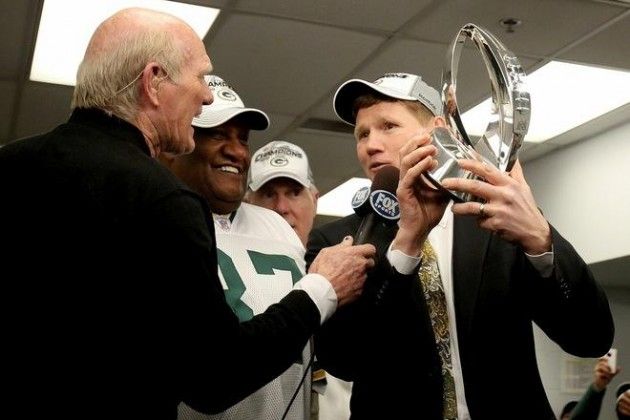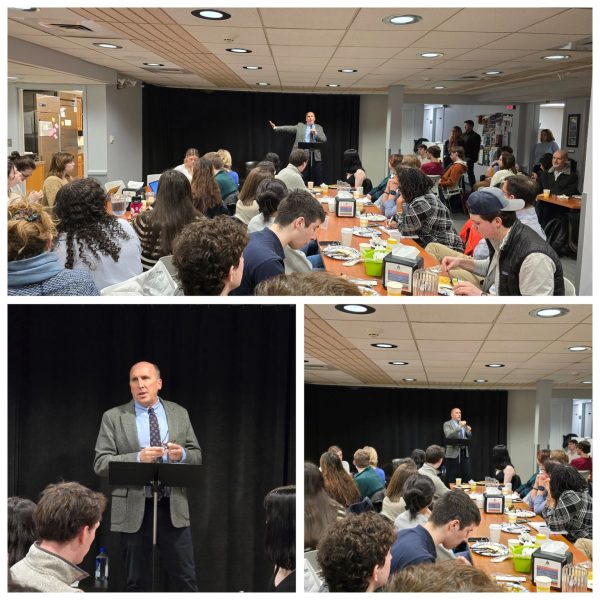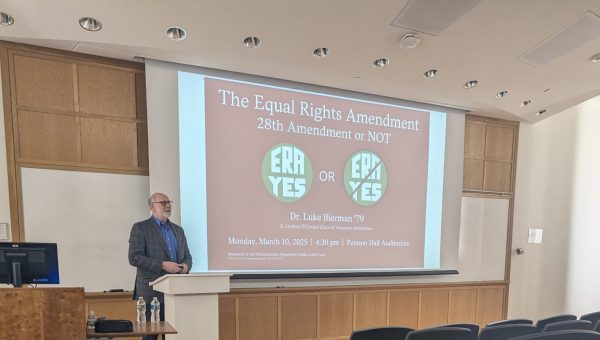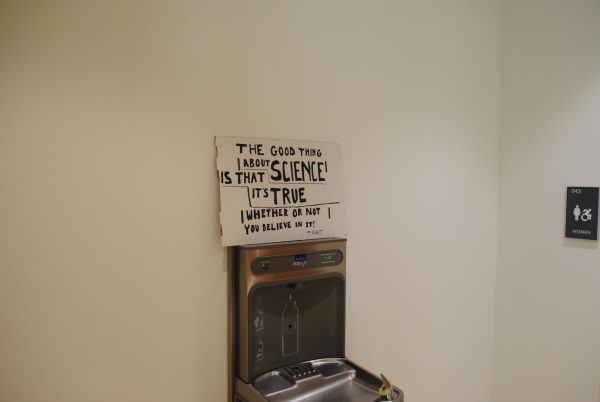Mark Murphy ’77 Wins Second Super Bowl
In 1992, Colgate alumnus Mark Murphy ’77 was beginning to get the feeling that it was time to slow down. Already at the age of 37, Murphy had played safety for eight years with the Washington Redskins while earning degrees from the Kogod School of Business at American University and the Georgetown University Law Center at night. In 1983, he co-captained Joe Gibbs’ Super Bowl XVII champion team. After his playing career, he served a brief stint with the NFL Players Union before taking a job at the United States Department of Justice.
“I was in my mid-30s, I had four young children and I didn’t think the lifestyle of being an attorney in D.C. would be great in terms of raising a family,” Murphy said in an interview with the Maroon-News in 2008.
Putting his legal career on hold, Murphy returned to Hamilton with his family and assumed the role of Athletic Director at Colgate from 1992-2003. He left Colgate in 2003 and became Athletic Director at Northwestern University. In 2008, Murphy was appointed President and CEO of the Green Bay Packers.
This past Sunday, after a 31-25 Packer victory over the Pittsburgh Steelers, he became the first man in the history of the NFL to win a Super Bowl as both a player and an executive.
When asked in an interview with the Maroon-News this week whether he thought he would ever have a chance to win another Super Bowl after returning to Colgate in 1992, Murphy could not help but laugh.
“No,” he chuckled “I didn’t think that would ever happen.”
Although he was more than 25 years removed from the league in 2008, the urge to return to the NFL was unrelenting. Upon accepting his position with the Packers, Murphy counted himself fortunate and called the offer a “unique opportunity to get back into the NFL.”
In 2008, Murphy had no way to know just how unique that opportunity would prove to be. At the beginning of his tenure, the drama concerning Brett Favre’s retirement, which would captivate the nation for nearly three years, was just beginning to unfold.
Just two months after Murphy was introduced as President of the Packers, Favre announced his retirement on March 5, 2008. After intense negotiations with the Packers which lasted through the summer, Favre came out of retirement and was traded to the New York Jets on August 7.
“It was a challenging time for the organization,” Murphy said. “For me, it was fairly early on in my tenure. Within my first six months, I had to deal with a pretty major issue.”
Murphy described the situation as exceptional in the history of the NFL because Favre’s impressive career had earned him a place as one of the NFL’s fan favorites.
“It was difficult,” Murphy said. “It split our fan base. The dividing line was fans who supported the Packers versus Favre fans.”
Looking back though, Murphy said that he believes the experience was largely a positive one for the long-term success of the organization because the situation necessitated close cooperation between himself, Packers Head Coach Mike McCarthy and Executive Vice President, General Manager and Director of Football Operations Ted Thompson. That cooperation fostered a partnership that would help the trio to hoist the Lombardi trophy in Dallas just three years later.
Although he was no stranger to the trophy himself, Murphy found himself in a far different position on Sunday than in his first Super Bowl 28 years earlier. His shoulder pads and helmet had long since been replaced by a jacket and tie, but his smile was just as wide.
Speaking about his second Super Bowl, Murphy said, “Well, it’s obviously tremendously exciting and very gratifying as a player and now in my position. But I think because of the position I’m in now I’m older and more mature. I think I have a greater appreciation for what a great accomplishment it is to win a Super Bowl.”
Asked what the keys to Sunday’s thrilling contest were, Murphy pointed to the excellent play of quarterback Aaron Rodgers and the play of Green Bay’s stifling defense.
“I was talking with our defensive coordinator, Dom Capers, and he noted that we have had pick sixes [interceptions returned for touchdowns] in each of our last three playoff games. When you return an interception for a touchdown, the odds of you winning go up dramatically. It’s such a big play.”
Although that Nick Collins’ 37- yard interception returned for a touchdown came in the first quarter, Murphy admitted that he was not entirely comfortable until the game was over. When asked how he felt when Ben got the ball back Murphy said simply, “I was nervous.”
He credited the Steelers for their competitiveness and praised Pittsburgh quarterback Ben Roethlisberger for his toughness and late game heroics, which victimized the Packers in a 37-36 loss in Week 15 of the 2009 season.
In the end though, Murphy said that this year’s Super Bowl represented a “microcosm of how the season turned out” for the Packers.
Having been hampered by injuries all season, the Packers lost several key players during the game in Dallas on Sunday. After suffering injuries to wide receiver Donald Driver and defensive backs Charles Woodson and James Shields during the game, Murphy said the Packers, “overcame adversity and did not use injuries as excuses.”
Although he conceded that the NFL is extremely competitive and each year stands on its own, Murphy believes the Packers’ future is bright.
“The real keys in the NFL are the quarterback and how you defend the pass; and we’re pretty good in both of those areas,” Murphy said.
In 2011, Murphy will begin his fourth campaign with the Packers, on the hunt for his third Super Bowl ring.






